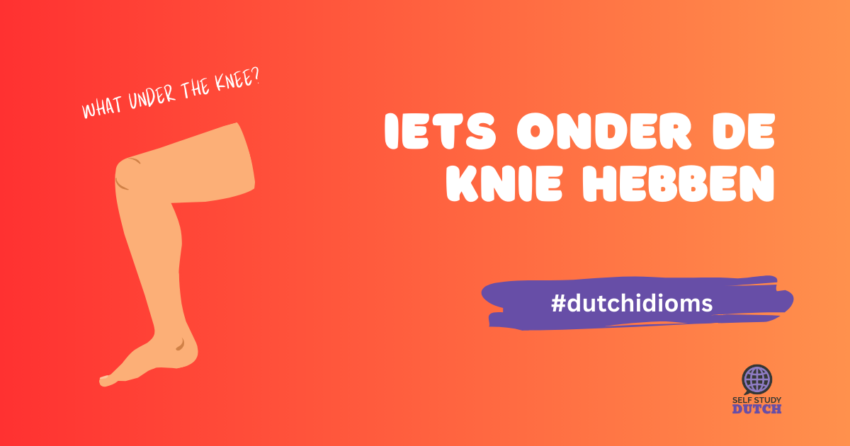Iets onder de knie hebben – under what? Learning a new language is much more than memorizing vocabulary and grammar rules. To truly immerse yourself in a language, you must grasp its idioms – those quirky expressions that add color and personality to everyday speech.
Today, we’re tackling a common Dutch idiom that often trips up language learners: “Iets onder de knie hebben.” Let’s break it down!
Literal Translation: Something Under the Knee
If you were to translate this idiom literally, you’d get “to have something under the knee.” Sounds a bit strange, right? That’s because the true meaning is figurative.
The Real Meaning: To Have Mastered Something
“Iets onder de knie hebben” means to have mastered a skill or to have a good understanding of something. It implies that you’ve put in the time and effort to learn something well and can now confidently perform the task or discuss the topic.
Examples in Action
Here are a few examples of how you might use “Iets onder de knie hebben” in a sentence:
- “Ik heb het Nederlands nog niet helemaal onder de knie.” (I haven’t mastered Dutch yet.)
- “Na een paar lessen had ze het breien onder de knie.” (After a few lessons, she had mastered knitting.)
- “Hij heeft de kunst van het onderhandelen echt onder de knie.” (He has really mastered the art of negotiation.)
Why “Under the Knee”?
While the exact origin of “Iets onder de knie hebben” remains a bit of a linguistic puzzle, it’s a testament to how idioms can colorfully capture a concept. The origin of this phrase can be traced back to the physical action of controlling something with the knee, often used in historical contexts where people needed to control tools or instruments, such as musicians positioning their instruments or workers handling equipment. Over time, this evolved into a metaphor for having full control or mastery over a task or skill.
Time to Practice!
The best way to learn an idiom is to use it! Try incorporating the idiom into your Dutch conversations. You can see ideas on how to do that in our Daily Dutch videos. You’ll sound more fluent and impress native speakers with your knowledge of idiomatic expressions.
It is always a good idea to work on expanding your vocabulary. You can do that with our dutch vocab sets here

